- europages
- >
- COMPANIES - SUPPLIERS - SERVICE PROVIDERS
- >
- quality
Results for
Quality - Import export
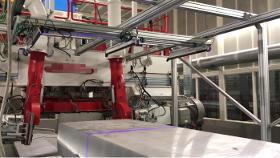
QUELLTECH GMBH
Germany
Particular Challenges of the Application: By tactile equipment, determination of the deepest point on a rough metal surface is neither simple or precise. As a consequence, often either too much material is removed, or the surface is still covered with defects which have to be eliminated by a following milling cycle. The equipment is arranged in parallel, so that the complete width of the slabs is covered. The sensors are calibrated to a common coordinate system and mounted on a movable gantry. Before measurement, the slabs are fixed in place. The scanners mounted on the gantry are guided over the measuring object, driven by an electric motor. The point cloud recorded by the four scanners is consolidated in a PC by means of the QuellTech image processing software which calculates the difference between highest and lowest point of the corresponding surface and compensates for possible inclination of the slab (detrending).
Request for a quote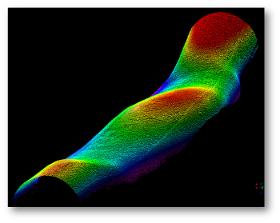
QUELLTECH GMBH
Germany
Particular Challenges: In the course of the production, endless cables are running at a considerable speed, and supervision has to be carried out nearly under real-time conditions. The size of the objects to be determined, i.e. of the flaws to be discovered, is in the range of only some hundredths of a mm. Another difficulty is the fact that surfaces with very different reflectivity and roughness are involved. In order to be able to check the cables all around, several laser scanners must be in place, mounted at different angles, thus covering the entire range of 360°. Quelltech Solution: The solution consists in a configuration of four Q6 laser scanners, mutually displaced by 90°, so the entire surface of the cables is in the field of view. On the basis of the 100% inline inspection, the position of defects can precisely be determined, without losing too much time.
Request for a quote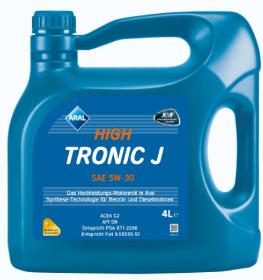
DIERMEIER ENERGIE GMBH
Germany
Aral HighTronic J is a modern low-ash smooth-running engine oil in Aral Synth technology. Can be used for petrol and diesel engines (especially with diesel particulate filter DPF) where a product according to ACEA C2, API SN (or earlier) or Peugeot PSA Approval B71 2290 is required. The modern Low Ash technology protects against harmful ash deposits in the diesel particulate filter and thus supports their effectiveness and service life. Specifications ACEA C2 PSA Approval B71 2290
Request for a quote
MICRO-EPSILON
Germany
thicknessGAUGE sensor systems are used for precise thickness measurements of strip materials, plates and sheets up to 50 mm. Several models with different sensor types, measuring ranges and measuring widths enable inline thickness measurements of different materials and surfaces based on an unmatched price/performance ratio. This fully assembled system comprises a stable frame on which two optical distance sensors are fixed, which detect the thickness of the measuring object according to the difference principle. The sensors are perfectly aligned to each other in terms of their mounting condition. Furthermore, thickness calibration at the factory enables high precision thickness measurements.
Request for a quote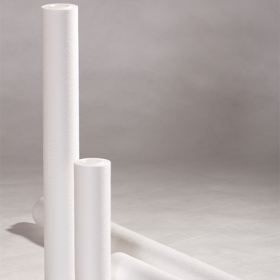
FILTERTECHNIK JÄGER GMBH
Germany
Wound filter-cartridges Type: PP, PPW (washed) Wound filter-cartridges are depth-filter-elements, produced in a special way of winding. Newest winding-machines guarantee a constant and high quality for filter-cartridges up to 60”. The PPW filter-element is wound with a special washed yarn. Washed yarn is free of wetting agents and prevents foaming.
Request for a quoteDo you sell or make similar products?
Sign up to europages and have your products listed
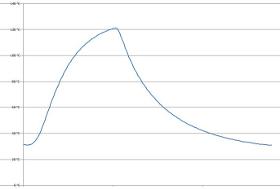
PRÜFREX INNOVATIVE POWER PRODUCTS GMBH
Germany
Alongside the standard ICT/FCT process, we can also target every individual production stage for verification, as requested. Efficient inspection strategies and final functional tests are a fixed component of our quality management system. In our test laboratory, we are able to carry out static and cyclical environmental simulation for you, from air-to-air and liquid-to-liquid thermal shock tests to storage temperature and humidity tests. Based on the environment in which the product is to be deployed, we will draw up a tailor-made quality assurance programme. Through simulation of the conditions that cause ageing (e.g. large temperature fluctuations) we can ensure that the product will reach the required service life. Products are also subjected to further customer-specific tests in fields such as EMC, overload resistance and mechanical loading.
Request for a quote
FILTERTECHNIK JÄGER GMBH
Germany
With FTJ-filter cloths, you can choose from approx. 40 high-quality fabric qualities, which fit your needs. The cloths consist mainly of polypropylene, polyester, polyamide and cotton. We would be pleased to advise you competently in the selection of the right filter cloth. In order to achieve the best results, fabric quality, grammage, air permeability and surface finish must be optimally tailored to your individual requirements. You can also get under-cloths at Filtertechnik Jäger. Drainage and cake drying can be improved. They also protect the upper cloths from mechanical wear. Special versions: Edge reinforcement Edge coating Reinforcement at supporting cam area Cloth collar from different materials Velcro fasteners Under-cloths/supporting fabric
Request for a quote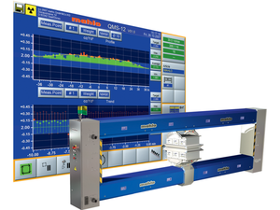
MAHLO GMBH & CO. KG
Germany
Web process control The Qualiscan QMS is a modular system for measuring, logging and controlling critical process parameters over the entire width of the product, including basis weight, coating weight, thickness, moisture etc.
Request for a quote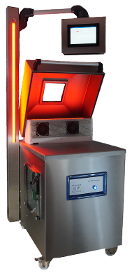
RIDZEWSKI GMBH
Germany
The automatic leakage tester used to control the tightness of CO2 inert gas packaging allows even the smallest leaks - even in the micro range - to be detected.The package is tested by simply placing it in the vacuum chamber. The automatic test cycle starts when the lid is closed. The unit generates a user-defined vacuum during this process. After the vacuum is reached, the sensor is set to the "virtual" zero point. If the CO2 concentration rises during the measuring time that now begins and was previously selected by the user, this indicates that the packaging is leaking. The measured increase of the CO2 content in ppm gives information about the size of the not tightly sealed area. The sensor demonstrably detects even the smallest leaks up to approx. 10 µm. (µm is a micrometre and corresponds to 0.001 millimetres)
Request for a quote
INVER GMBH
Germany
Quality assurance through internal quality control , the quality characteristics like Light transmittance clarity Minimum thickness of the individual plates / packages are ensured.
Request for a quote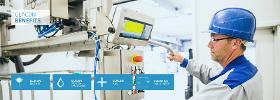
APU SCHÖNBERG GMBH
Germany
Quality assurance, always on the safe side Trust is good, control is better: All of the raw materials we useand the final products approved for distribution have been tested for their flawless quality by our experts in the analysis laboratory. The analysis is carried out during the production, using the latest analytical instruments and methods, such headspace gas chromatography (HS-GC) or spectral photometry. Our chemists, chemical engineers and laboratory assistants accompany the production year-round in a multiple shift system, so that continuous quality monitoring of raw materials and products can be guaranteed.Regular professional development, continuing training and courses deepen our professionals’ expertise and encourage an interdepartmental exchange of experiences.
Request for a quote
APU SCHÖNBERG GMBH
Germany
In our company guidelines we have committed to exclusively utilizing purely vegetable products for the production of pharmaceutical glycerine, with a strong emphasis on the aspect of sustainability. The company has decided that crude glycerine based on used cooking oils, which are originally of vegetable origin but in the course of their use have been mixed with fats of animal origin, will only be supplied for technical uses, the same applies to glycerine from the lipolysis of animal fats. It can not be permitted to produce a raw material, whose quality cannot be monitored down to the smallest detail, at the cost of humans and the environment, while adequate economical and ecological solutions exist, which are also safe for human health. There is no question that these solutions exist for the production of glycerine, in form of nearly all common oleaginous plants including rape, sunflower, soy and oil palm. As long as sustainability is ensured, all pure vegetable oils must be...
Request for a quoteResults for
Quality - Import exportNumber of results
13 ProductsCompany type